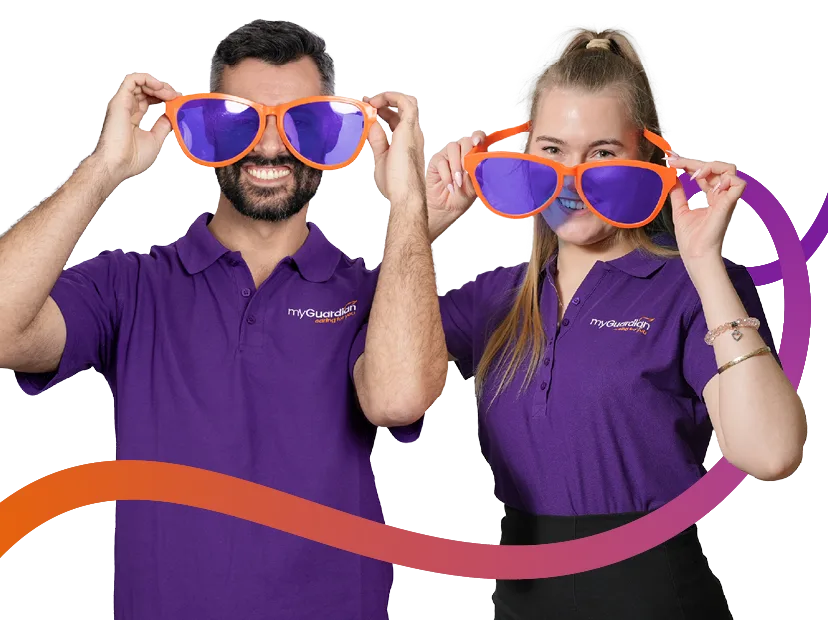Understanding NDIS Support Categories: Core, Capacity Building, Capital and Recurring
When you first dive into the NDIS, it can feel like you’re learning a whole new language. One of the first things participants often ask us is: “What do all these support categories mean?” It’s a great question and an important one.
Your NDIS plan is made up of three main types of support funding: Core Supports, Capacity Building Supports, Capital Supports and Recurring Supports. Each serves a different purpose, and knowing how they work can help you get the most from your plan.
At My Guardian, we’re here to make understanding your NDIS plan simpler and more empowering, so you can focus on what matters most, living your life with the right disability support services behind you.
Core Supports: The Everyday Essentials
Think of Core Supports as the day-to-day help you need to live your life. This category is usually the most flexible in your plan, allowing you to shift funds around depending on what matters most to you.
Core Supports can include:
- Daily personal activities – Help with getting ready, showering, dressing, or taking medication
- Transport assistance – Getting to appointments, programs, or the shops
- Consumables – Everyday products like continence aids, feeding equipment, or low-cost AT
- Social & community participation – Support to attend events, make friends, or try something new
Why it’s important: This is your day-to-day support; it keeps you moving, connected, and supported every step of the way.
Good to know: Core is flexible. For example, if you don’t use all your consumables one month, you might be able to use those funds for more support hours instead (within the same category).
Capacity Building: Grow Your Independence
Capacity Building is all about progress, building your skills, knowledge, and confidence so you can live more independently. Unlike Core, this category isn’t flexible; each support area has its own budget.
Capacity Building Supports can include:
- Support coordination – Helping you make the most of your plan and connect with services
- Behaviour support: Specialist interventions to reduce behaviours of concern and support your quality of life.
- Improved daily living – Allied health support like occupational therapy, physiotherapy, or psychology
- Improved relationships – Support to build social skills or manage behaviours
- Finding and keeping a job – Employment services or life skills training
- Health & wellbeing – Nutrition advice, exercise programs, or mental health support
Why it’s important: This is about investing in your future and unlocking the tools to live with more freedom and self-direction.
Good to know: While funds are fixed to specific goals, your support coordinator (like the ones at My Guardian) can help you get the most from each area by aligning services with your personal goals.
Capital Supports: One-Off Investments
Capital Supports are for larger, one-time purchases or investments in your safety, mobility, or living situation. This category is not flexible and requires NDIA approval for specific items.
Capital Supports can include:
- Assistive Technology (AT) – Such as communication devices, mobility scooters, or hoists
- Home modifications – Like grab rails, ramps, or bathroom upgrades
- SDA (Specialist Disability Accommodation) – Purpose-built homes for participants with extreme functional impairment
Why it’s important: These supports can be life-changing. They help you live more comfortably and safely in your home and community.
Good to know: Capital supports need quotes and approvals. Our team can walk you through the process, from identifying needs to coordinating installation or move-in.
Recurring Supports: Consistent, Predictable Support
Recurring Supports are funding types paid directly to you on a regular basis, with no need to submit claims. They’re typically used for everyday needs like transport.
Recurring Support can include:
Transport Recurring: Weekly or monthly deposits to help you get to work, school, appointments, or social activities.
Why it’s important: These supports are essential for keeping you mobile, involved, and independent.
Good to know: Recurring supports are handled separately from the rest of your plan and are great for those who want predictable, no-fuss support.
So, What’s the Difference Between These Four?
| Support Category | What It Covers | Flexibility | Goal |
|---|---|---|---|
| Core | Everyday essentials like care and transport | Most flexible | Daily independence |
| Capacity Building | Skills, therapies, behaviour support, employment | Fixed by category | Long-term development |
| Capital | One-off items like AT or home changes | Least flexible | Safety, mobility, housing |
| Recurring | Ongoing transport funding paid directly to you | Not claim-based | Routine access & inclusion |
How We Support You at Every Stage
At My Guardian, we’re more than just a provider. We’re your partner in making the most of your plan. Whether you’re just starting with the NDIS or looking to review your supports, we’re here to guide you across all three funding categories.
From day-to-day personal care and community access, to organising assessments for assistive tech or SDA/SIL eligibility, we’re here to make it easier, warmer, and more human.
Need help navigating your supports?
Don’t hesitate to reach out for more information, we’re just a phone call away at 02 9336 7555, or you can get in touch here.









